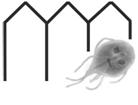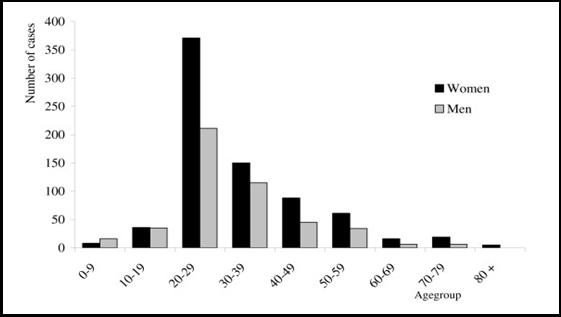

|
Investigating giardiasis and long term complications |
|
Bergen Giardia Research Group |
|
Home |
|
Background |
|
Research projects |
|
Involved researchers |
|
BGRG & publications |
|
News & Links |
|
Home | Background | Research projects | Involved researchers | BGRG & Publications | News & Links |

|
Background |
|
It is estimated that between 5000-6000 persons in Bergen were infected with the parasite Giardia lamblia during autumn 2004, due to drinking contaminated water from an open municipal water source, Svartediket. The parasite was detected in faecal samples from around 1300 individuals.
Whilst some of the infected individuals did not develop symptoms and others had mild illness, many of those infected developed considerable abdominal symptoms of nausea, abdominal pain, diarrhoea, foul smelling flatulence, and bloating. An excess of around 2500 prescriptions of anti-parasitic treatment were issued by primary care physicians during the epidemic. For many of the patients the prescribed treatment resulted in a cessation of symptoms.
However, some patients did not recover, despite treatment and effective eradication of the parasite, sometimes after several treatment courses. Around 200 patients have been referred to the medical department of Haukeland University Hospital in the three years following the outbreak. These patients have been thoroughly evaluated and followed up in order to reveal any specific serious/treatable illness causing their symptoms.
The abdominal symptoms observed, are consistent with a group of illnesses termed functional gastrointestinal diseases (FGID) which, among others, encompasses functional dyspepsia (FD) and irritable bowel syndrome (IBS). A subgroup of patients have experienced severe physical and mental fatigue as the most prominent and debilitating symptom. Some of these patients have been diagnosed with chronic fatigue syndrome (CFS). |
|
Age and sex distribution of among the individuals who had laboratory-confirmed Giardia-infection in Bergen, autumn 2004. Source: Nygard et al (2006). |

|
Webansvarlig: Kurt Hanevik |
